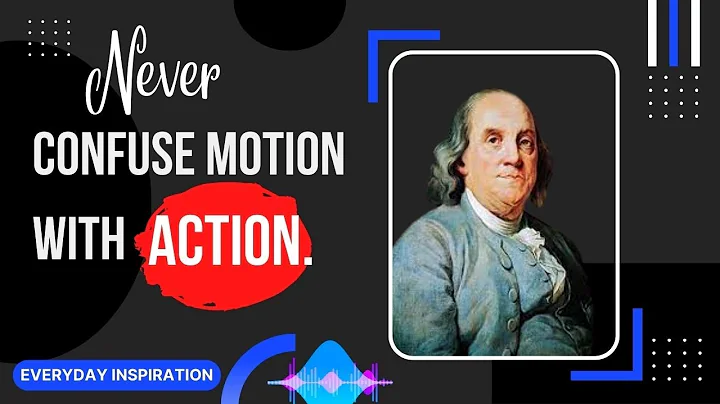Unveiling the Legacy of Frederick Douglass
Table of Contents
- Introduction
- Early Life and Family Separation
- The Power of Education
- The Battle with Edward Covey
- Love, Marriage, and Escape
- Frederick Douglass as an Orator and Writer
- The North Star and The Liberator
- The Fugitive Slave Law of 1850
- Faith and Advocacy during the Civil War
- Post-War Years and Legacy
Introduction
📌 The life and legacy of Frederick Douglass, one of the greatest figures in American history, are explored in this article. From his early life as an enslaved person to his remarkable journey to freedom and subsequent activism, Douglass's story is one of resilience, courage, and intellectual prowess.
Early Life and Family Separation
📌 Frederick Douglass was born into slavery in Maryland. His mother was enslaved, and his father was rumored to be his mother's enslaver. Family separation was a common and devastating aspect of enslavement, with many children being separated from their parents at a young age. Despite these challenges, Douglass's grandmother played an influential role in his upbringing.
The Power of Education
📌 As a child, Douglass began learning to read when the wife of one of his enslavers, Sophia Auld, taught him the alphabet and some words. However, his lessons were abruptly stopped by her husband, who believed that education would make Douglass unfit to be a slave. Undeterred, Douglass continued to learn to read in secret and even taught other enslaved individuals to read as well.
The Battle with Edward Covey
📌 One of the defining moments in Douglass's life was his intense physical altercation with Edward Covey, a notorious "slave-breaker" who subjected Douglass to relentless abuse. After a brutal beating from Covey, Douglass fought back and never allowed himself to be physically mistreated again. This experience ignited a sense of freedom within Douglass and inspired his determination to escape from slavery.
Love, Marriage, and Escape
📌 Douglass married Anna Murray, a free Black woman who played a crucial role in his escape to freedom. With her support, Douglass disguised himself as a sailor and successfully traveled from Baltimore to New York, leaving behind the chains of slavery. Their marriage symbolized the strength of love and resilience in the face of oppression.
Frederick Douglass as an Orator and Writer
📌 Douglass's powerful speeches and writings played a significant role in the abolitionist movement. His autobiography, "Narrative of the Life of Frederick Douglass, An American Slave," exposed the brutalities of slavery and transformed the national conversation on the institution. Despite skepticism from some white readers, Douglass's literary skills and intellectual prowess shone through his compelling narratives.
The North Star and The Liberator
📌 After leaving Maryland, Douglass joined William Lloyd Garrison's abolitionist publication, The Liberator. Soon after, he started his own newspaper, The North Star, which covered various issues of the time, including the controversial Fugitive Slave Law of 1850. Through his writings and activism, Douglass fought for the rights of Black people and championed gender equality.
The Fugitive Slave Law of 1850
📌 The Fugitive Slave Law of 1850 intensified the oppression faced by enslaved individuals and free Black people alike. Douglass actively spoke out against this law, highlighting its inhumanity and advocating for the rights of those affected. Despite the challenges posed by the law, Douglass maintained hope and believed in the ultimate triumph of justice.
Faith and Advocacy during the Civil War
📌 Douglass's strong faith in God and his belief in the power of activism guided him during the Civil War. He urged President Abraham Lincoln to prioritize the freedom of Black individuals, emphasizing the importance of Black men fighting in the war to demonstrate their patriotism and worthiness of citizenship. Douglass's advocacy played a pivotal role in the enactment of the Emancipation Proclamation.
Post-War Years and Legacy
📌 After the Civil War, Douglass continued his work as an orator and writer, spreading his message of justice and equality. He held various political appointments and remained dedicated to advocating for the rights of Black people and women. Douglass's literary works continue to inspire and educate people today, cementing his status as a founding father of American activism.
Highlights
- Frederick Douglass, a prominent figure in American history, was born into slavery but went on to become a prolific writer, orator, and abolitionist.
- Despite the hardships of family separation and oppressive conditions, Douglass defied the odds and pursued education, ultimately sharing his knowledge with others.
- The physical altercation with Edward Covey marked a turning point in Douglass's life, inspiring him to fight back against slavery and dedicate himself to the pursuit of freedom.
- Douglass's marriage to Anna Murray and their subsequent escape to freedom underscored the power of love and determination in the face of adversity.
- Through his speeches, writings, and leadership roles in newspapers such as The Liberator and The North Star, Douglass became a driving force in the abolitionist movement.
- The Fugitive Slave Law, Douglass's advocacy during the Civil War, and his alliance with President Lincoln played pivotal roles in the fight for Black freedom.
- Throughout his life, Douglass's unwavering faith and commitment to justice fueled his activism and legacy.
FAQs
Q: What were Frederick Douglass's most famous writings?
A: Frederick Douglass's most famous writings include his autobiography, "Narrative of the Life of Frederick Douglass, An American Slave," as well as various speeches and essays on abolition and civil rights.
Q: How did Frederick Douglass influence the abolitionist movement?
A: Frederick Douglass's powerful speeches and writings played a significant role in shaping public opinion on slavery. His firsthand account of the horrors of enslavement humanized the experiences of enslaved individuals and galvanized support for the abolitionist cause.
Q: What was Frederick Douglass's role in the Civil War?
A: During the Civil War, Frederick Douglass actively campaigned for the enlistment of Black men in the Union army. He believed that their service would not only contribute to the war effort but also prove the worthiness of Black individuals for full citizenship rights.
Q: What legacy did Frederick Douglass leave behind?
A: Frederick Douglass's legacy is one of resilience, intellectual prowess, and dedication to justice. His writings continue to inspire generations, and his advocacy for civil rights laid the foundation for future social justice movements.







